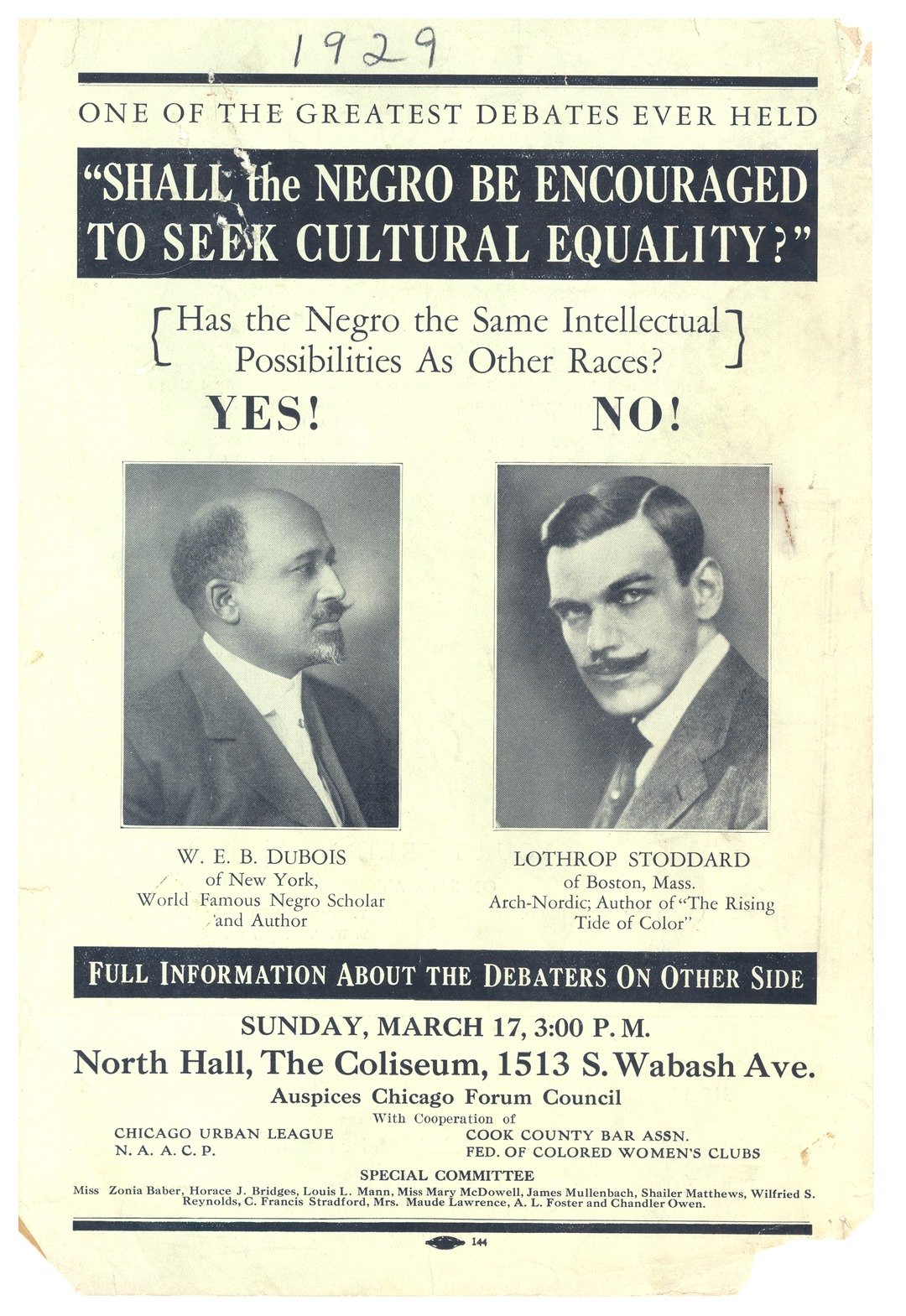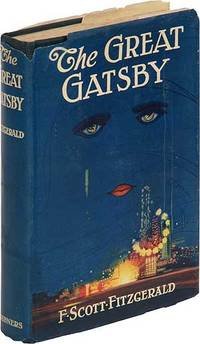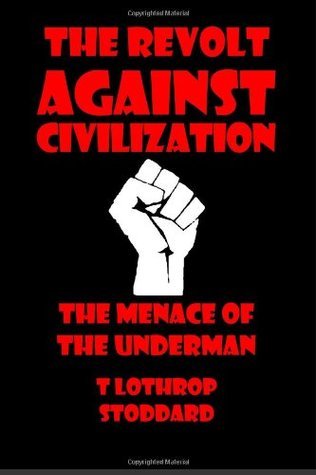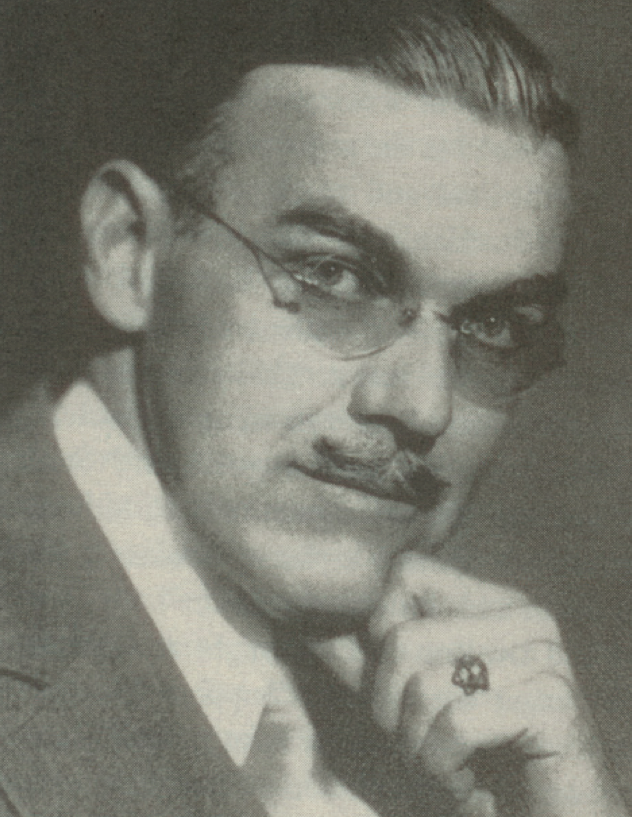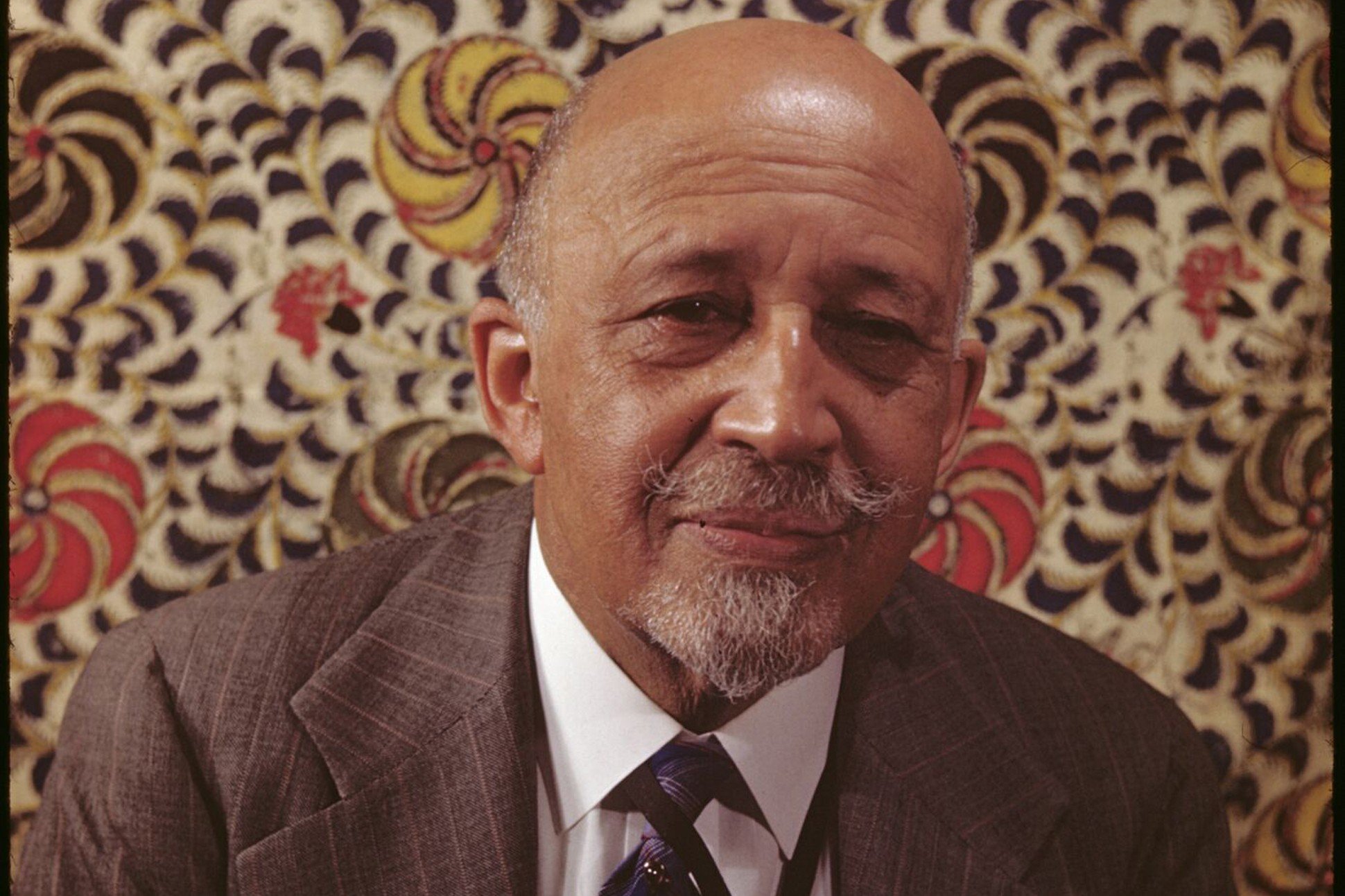W.E.B. DUBOIS AND THE GREAT RACE DEBATE
CHICAGO, MARCH 17, 1929 — Coming in from a frigid afternoon, a teeming crowd files beneath soaring rafters and settles into seats. Chicago’s Coliseum has hosted hockey games, ward meetings, Republican conventions, but never an event like this.
The Chicago Forum, a speaker begins, is “for the discussion of vital questions of public interest. . . This afternoon, we have one such question. I think everyone here will agree with me that it is the kind of question that is seldom brought out into the open.”
The question?
“Shall the Negro Be Encouraged to Seek Cultural Equality?” Subtitle: “Has the Negro the Same Intellectual Possibilities as Other Races?”
Stars and stripes hold center stage. On the flag’s right stands a short, dapper black man. As Harvard’s first black Ph.D., author of The Souls of Black Folk, W.E.B. DuBois will square off against the mustachioed gent standing stage left.
Lothrop Stoddard, also sporting a Harvard Ph.D., offered no apologies for his racial — ahem — views. His book was a Bible for the eugenics movement promoting racial purity. The Great Gatsby summed it up.
“Civilization’s going to pieces,” broke out Tom violently. “I’ve gotten to be a terrible pessimist about things. Have you read ‘The Rise of the Colored Empires’ by this man Goddard?”
The actual title was The Rising Tide of Color Against White World Supremacy. Stoddard’s warning: the Nordic race, creators of civilization, was threatened by “hordes of immigrant Alpines and Mediterraneans, not to mention Asiatic elements like Levantines and Jews.” As for blacks, “The negro has contributed virtually nothing. Left to himself, he remained a savage.”
Tickets sold for 50 and 75 cents. Posters predicted “one of the greatest debates ever held.” The audience of 5,000, black and white, agreed. Hundreds milled outside. DuBois spoke first.
In a resonant baritone, DuBois questioned the question. Why shouldn’t all people seek cultural equality? “What could you conceive as better than a world in which all of the citizens of that world were not only encouraged to cultural equality, but accomplished it?”
Throughout his allotted half hour, DuBois eviscerated his opponent. Stoddard, DuBois said, considered culture as made by “Chosen People.” But despite the “science” of eugenics, there was no proof that Nordics alone were cultured, nor “chosen.” “In fact, the proofs of essential human equality of gift are overwhelming.”
The audience was asked to save its applause, but Chicago was a terminus for “the great migration” from the South. And when DuBois took up the South’s “obsession,” the audience stirred.
So this man Stoddard worried about mixing Nordic with colored? Whose idea was this mixing? Nordics were free to leave colored women alone. “But this has never been the Nordic program. Their program is the subjection and rulership of the world for the benefit of the Nordics. . . They have been responsible for more intermixture of races than any other people, ancient and modern, and they have inflicted this miscegenation on helpless unwilling slaves by force, fraud and insult. And this is the folk that today has the impudence to turn on the darker races, when they demand a share of civilization, and cry: ‘You shall not marry our daughters!’”
The audience was rocking now, cheering as DuBois boomed, “Who in Hell asked to marry your daughters?”
The audience settled as Stoddard began. Blunting his racism to call the Negro merely “different,” he promoted “bi-racialism,” a.k.a. “Separate but equal.”
The audience was polite, quiet. But then Stoddard’s argument went south.
“The more enlightened men of southern white America are doing their best to see that separation shall not mean discrimination; that if the Negroes have separate schools, they shall be good schools; that if they have separate train accommodations, they shall have good accommodations. . .”
Laughter rocked the hall. Stoddard stopped. He did not get the joke, he said, causing another wave of laughter. DuBois explained. Dr. Stoddard had not ridden in the squalor of a railroad Jim Crow Car, DuBois said. “We have.”
Stoddard never recovered. Later he praised bi-racialism as “something that you cannot laugh down.” Then the two squared off in open debate. “Today as never before,” Stoddard said, “we know that our America is a White America. “
DuBois pounced. “Your country? How came it yours? Would America have been America without her Negro people?”
After 90 minutes, the debate ended. The audience filed out, back to separate but unequal lives. The next day, only the black Chicago Defender covered the debate.
DuBois Shatters Stoddard’s Cultural Theories in Debate
The nation’s black press picked up the article. The rest of America paid scant attention. When further debates were proposed, DuBois was ready. Stoddard declined.
Stoddard’s book soon fell from favor. Seems his eugenics theories resonated with Nazis. When Stoddard went to Germany and sent back favorable articles, the lie of white supremacy repulsed the vast majority of Americans. Stoddard died in obscurity in 1950.
And that Nordic culture? “I wonder,” DuBois concluded, “if the future is not going to show that the civilization of the world is the gift of the few simply because only the few have had the chance to develop. And when the millions of all people, white and black, yellow and brown, have real opportunity, that civilization in its highest and best form, is coming from them, and not from the present aristocracy.”
READ MORE ABOUT DUBOIS IN THE ATTIC’S “LIFTING THE VEIL OF RACE.”


